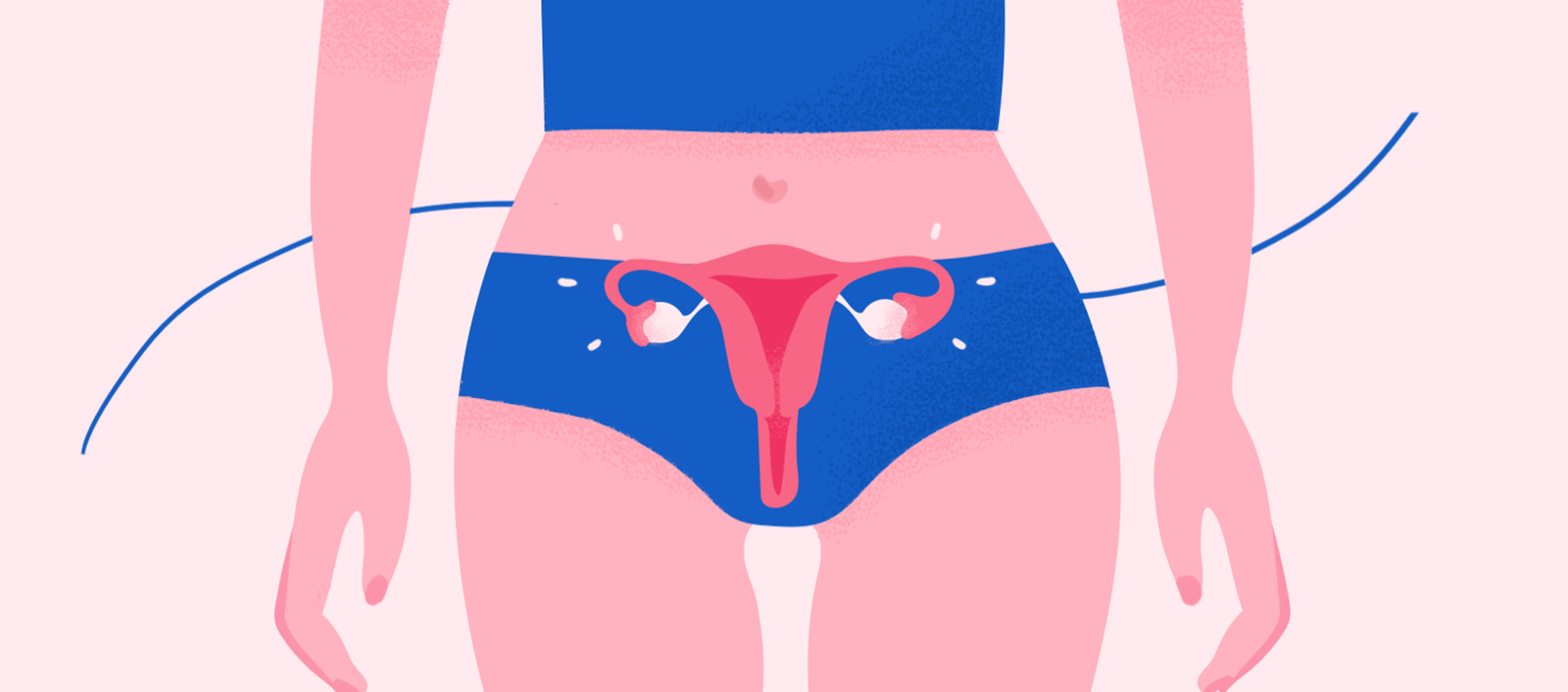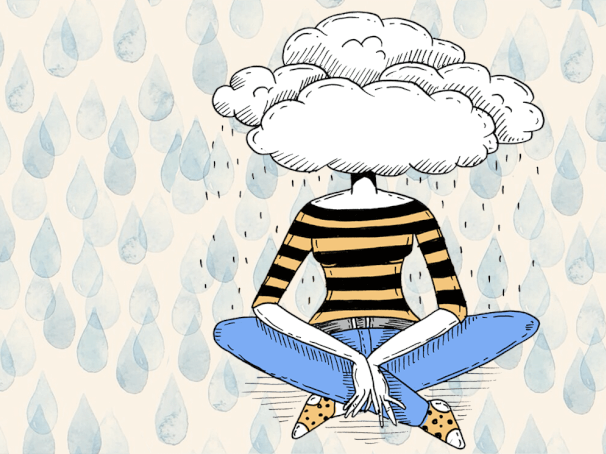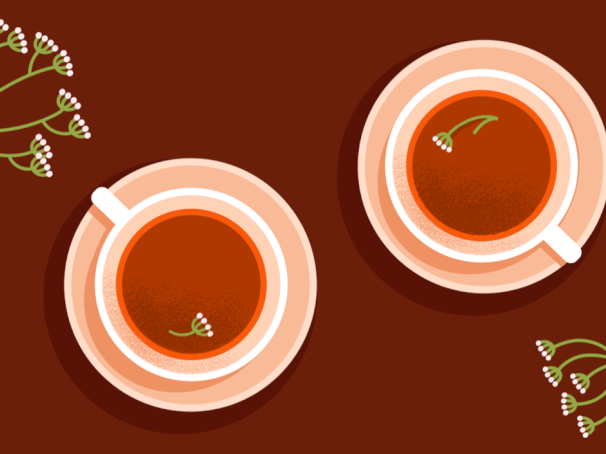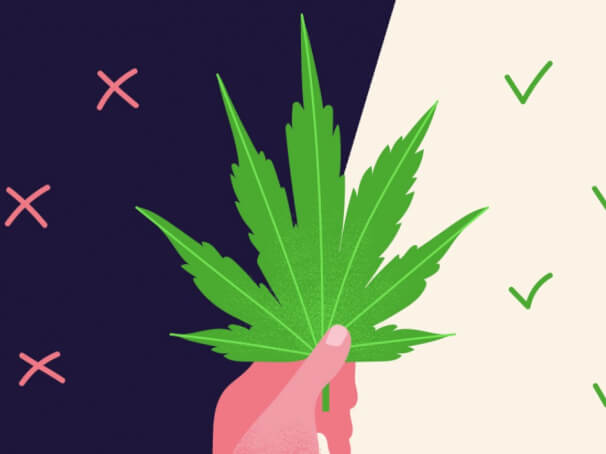
焦虑是一种独特的condition-generally印版d through years of experiences and genetics, and while there can occasionally be some external or physical health factors, anxiety is most often caused by faulty thought processes.
But what makes anxiety interesting is that it can also be caused by changes to the body's stasis, or equilibrium. Even though people think of anxiety in terms of anxious thoughts, these anxious thoughts can be affected by the health of your body. That's why anxiety - including worries and fears - can be caused or elevated by premenstrual syndrome, or PMS.
Fluctuating Hormones Cause Anxiety
PMS is often blamed for emotional changes, sometimes unfairly. But there is no denying that fluctuating hormones affect anxiety. It's a well-known, established medical fact.
Causes of PMS Anxiety
Both premenstrual syndrome and anxiety are incredibly complex. That's why while many of the causes of anxiety from PMS are known, there are issues at play that may not be accounted for or completely understood. What may cause anxiety in one woman may not cause anxiety in another, or may cause anxiety in a completely different way.
But there are potential links that are known. The following are the most likely causes of PMS anxiety:
- Cortisol IncreaseStudies have shown that before a woman's period cortisol, the stress hormone, tends to increase. Stress is known to make anxiety symptoms worse. So before a period, when cortisol levels shoot up, anxiety symptoms would be expected to shoot up with them. It's possible that women suffering from this type of PMS anxiety have lower levels of anxiety throughout the month that are simply exacerbated by cortisol, rather than PMS causing anxiety itself.
- Cyclical Emotional ReactionsSimilarly, any chronic stress and anxiety is believed to make PMS symptoms worse. If you're experiencing a period of stress and anxiety before your PMS symptoms occur, this may increase your PMS symptoms, which in turn will increase your stress and anxiety symptoms and so on.
- Fear of or Response to PMS SymptomsNot all anxiety is caused by the hormones or PMS directly. Many women that suffer from intense PMS start to fear those symptoms. Combined with cramping pain and other uncomfortable physical sensations, these issues can actually create their own separate form of anxiety. In these cases, PMS isn't technically causing anxiety, but the PMS experience is leading to the development of anxiety in women that suffer from premenstrual syndrome.
In addition, simple hormone imbalance is known to lead to anxiety for reasons that are not always clear. Hormones play a direct role in the way your body produces and responds to the neurotransmitters that control stress and anxiety, so it's likely that when these hormones have lost their balance, anxiety and stress are the result.
Combined with the sheer fear of emotional dysregulation, the over-sensitivity that some women experience towards their body, and the feeling of being overwhelmed that often accompanies PMS episodes, it's no wonder that anxiety is a common experience for women who are menstruating.
How to Overcome PMS Anxiety
Overcoming PMS anxiety is both simple and challenging. It's simple, because there are several techniques that should at least reduce your anxiety overall. But it's challenging, because your menstrual cycle is something you cannot control and varies in intensity from month to month.
考虑的一种选择是任何特定的PM处理。万博max手机PM本身的一些最常见的解决方案包括:
- Dietary changes, including adding Calcium, Vitamin E, Magnesium and Tryptophan into your diet, and possibly abstaining from caffeine.
- Hormonal interventions, including contraceptives in various forms (pill, implant, etc).
- NSAID止痛药和任何减少PMS的一些物理疼痛的药物(因为物理疼痛增加压力,这增加了PMS症状)。
Still, it's important to remember that most theorize that PMS doesn't "cause" anxiety in a clear-cut cause/effect sense. Rather, it makes the anxiety you already experience worse. In addition, even though anxiety caused by PMS is the result of physical changes, you can often treat premenstrual anxiety through the same behavioral principles that people use to treat anxiety not caused by premenstrual symptoms. The coping mechanisms are the same, and often overlap.
Some examples of how to cope with PMS anxiety include:
- MindfulnessBecause PMS anxiety often feels natural, many of those living with anxiety are unaware when they're affected by it until after they've already suffered through the anxiety symptoms. Mindfulness is the practice of stopping and noticing each anxiety symptom before it consumes you, and then doing your best to calm yourself down from them. For example, if you find yourself frightened or irritable, you stop, question the feeling, and try to relax your body. Additionally remaining mindful in each thing you are doing can prevent your mind from wandering to anxiety-producing thoughts.
- 杂志应对There are several coping strategies that involve journaling (like writing in a diary). One involves simply letting out all of your emotions on paper, since bottling them up reduce your ability to combat anxiety. Another involves writing out positive things throughout the month, and then when you start to feel anxious or negative, looking back on all of those positives to remind yourself that your emotions are not based on your recent past.
- Therapies创建了几个治疗改善警察ing in women with anxiety. General counseling can be very helpful and supportive, because it gives you an opportunity to share your thoughts all month while scheduling an appointment that should give you a chance to get help for your anxiety. In particular cognitive behavioral therapy, commonly known as CBT, can help teach you to change unhelpful thinking patterns and dialectical behavior therapy, commonly known as DBT, can help teach distress tolerance.
- ExerciseExercise is a crucial part of healthy living, and an important part of dealing with anxiety caused by PMS. Several studies have linked aerobic workouts with controlling anxiety symptoms. Exercise is also a general anxiety cure as well, so it should be especially effective for those that struggle with daily anxiety.
Any and all anxiety treatments may also reduce your stress and improve overall wellness. If you control the way anxiety and stress affect you when you don't have PMS symptoms, then you should experience fewer anxiety symptoms during before your period.







